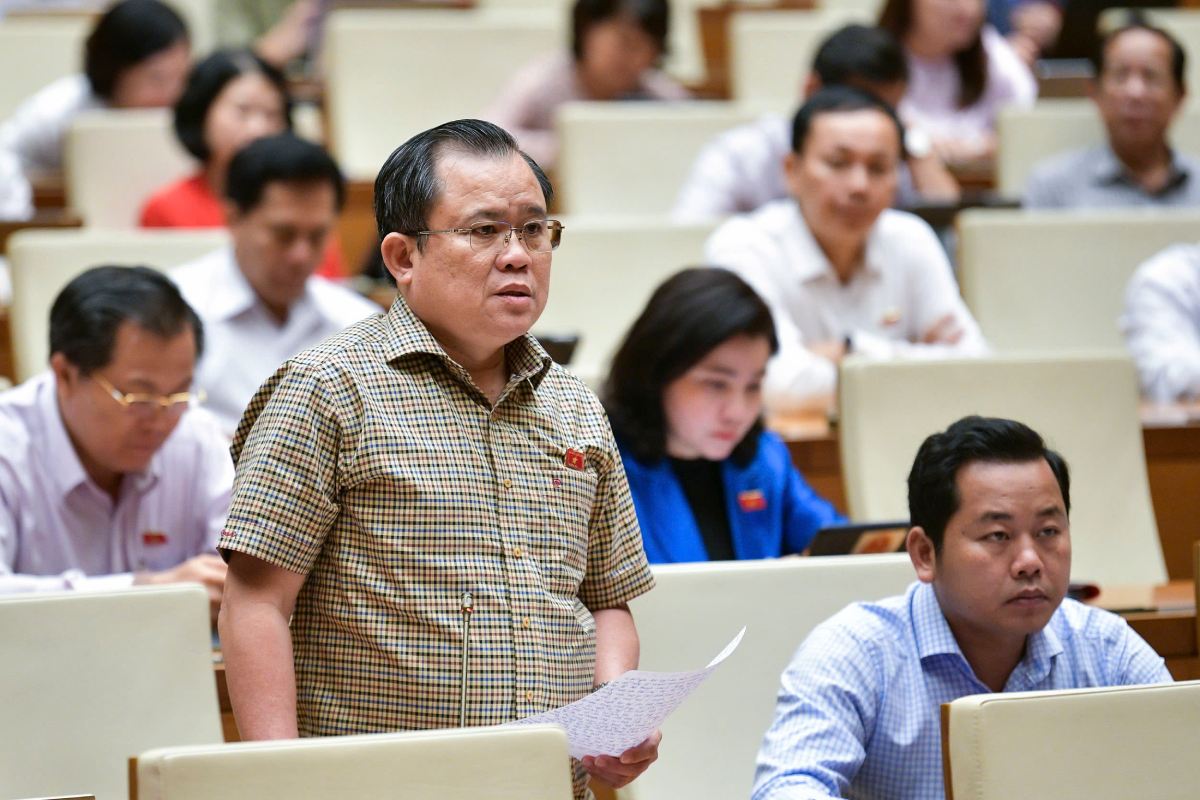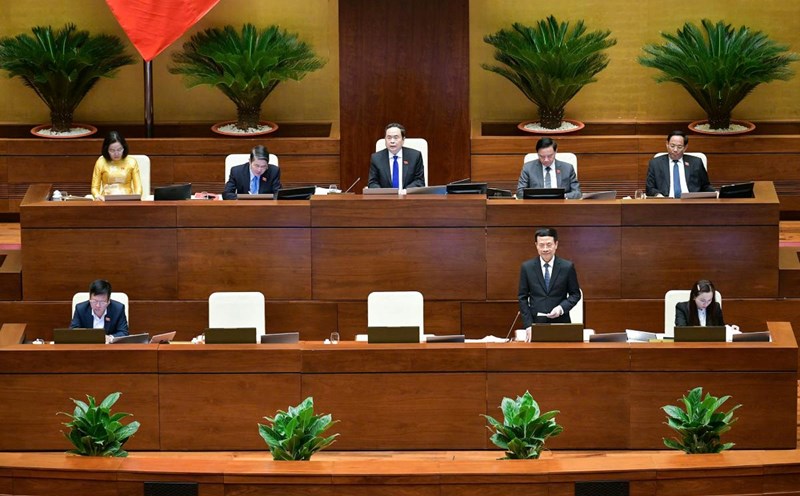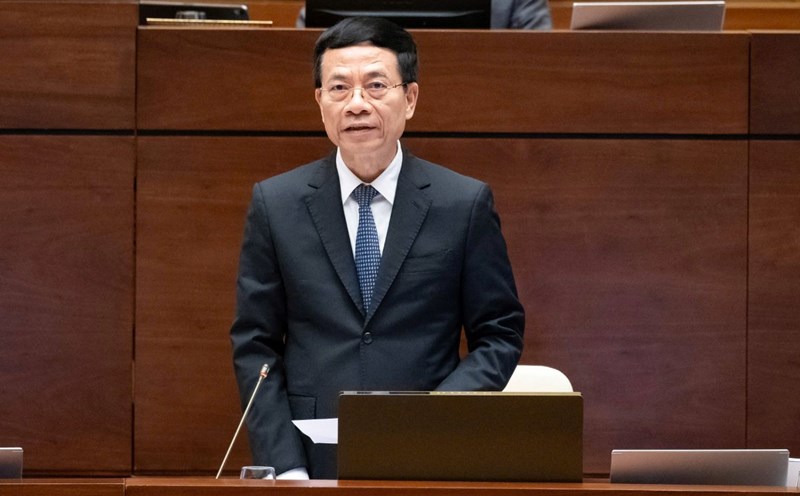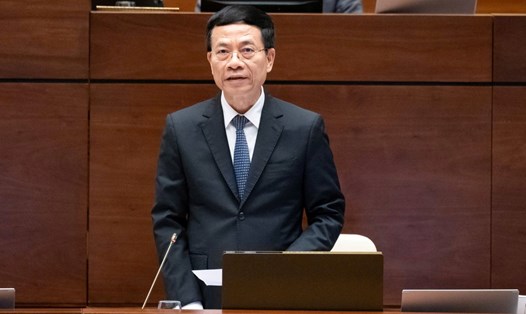On the afternoon of November 12, the National Assembly continued its question and answer session on a group of issues in the field of information and communications.
Attending the afternoon question and answer session were General Secretary To Lam and Prime Minister Pham Minh Chinh.
Participating in the questioning, delegate Nguyen Tam Hung (Ba Ria - Vung Tau delegation) asked the Minister of Information and Communications to provide solutions to improve the effectiveness of management and control of content on cross-border digital platforms in the coming time?

Responding to this issue, Minister of Information and Communications Nguyen Manh Hung said that cross-border social networking platforms operate under regulations that are different from Vietnam's legal system, so it will be difficult to require compliance with our country's laws.
The Ministry's general view is that Vietnam is a sovereign country, has sovereignty over cyberspace, has laws, has government, and has forces in hand. Therefore, even if a business comes from another country, doing business in our country must comply with our country's laws.
These platforms must not only comply with the law but also contribute to building the country in which they do business.
The Ministry has worked for many years, achieving positive results such as increasing the response rate to remove harmful, false information from 10%, 20% in previous years to over 95%. Response time has been shortened from 48 hours in the past to 24 hours and now to 12 hours.
In some cases, we have to deal with bad and toxic information in less than 2 hours. Previously, we only removed bad and toxic information, now we remove accounts and pages not only temporarily but also permanently if the violation is serious.
The Minister said that previously, social media platforms did not proactively scan but only did so when requested. Now they must automatically scan and remove general violations such as gambling, prostitution, terrorism, child abuse, and trading in prohibited goods.
Previously, social networks were anonymous and anonymous stories occurred on social networks, leading to many irresponsible people. Now social networks are identified by phone numbers and ID cards to determine identity when violating.
In particular, many social networks have cooperated with the ministry in promoting and combating fake news and online scams. Social networks have complied with Vietnamese law in their contracts with customers.
Minister of Information and Communications Nguyen Manh Hung said that social networks have paid taxes in Vietnam for 2.5 years, paying over 20,000 billion VND, a 6-fold increase compared to before. This is a very positive sign.
Social networks, as required by the Law on Cyber Security, must appear and have a legal presence in Vietnam to facilitate information processing and violation handling.









